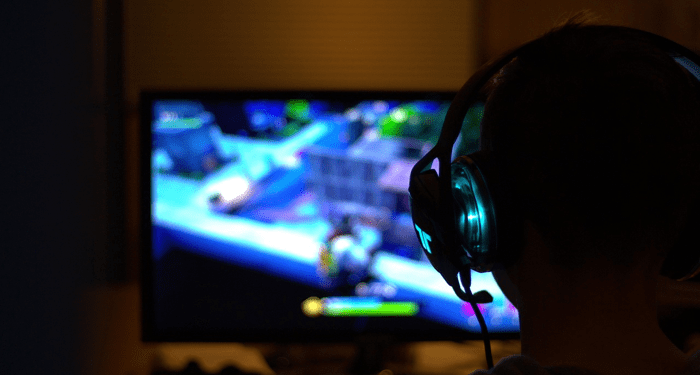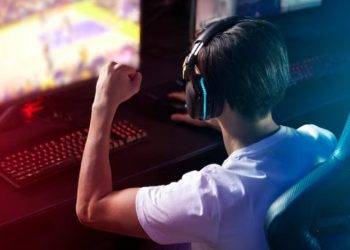Have you ever thought about how much your brain works when you play an online game? Many people play for fun or relaxation, but what they don’t always realize is that gaming can actually help sharpen the mind. Online games, from puzzle-based challenges to strategy and simulation titles, have been found to improve memory, focus, and decision-making. Playing regularly, even for short periods, can make your brain more active and flexible in handling day-to-day situations.
The Connection Between Gaming and Cognitive Growth
Online link gacor games are not just about entertainment; they encourage players to think quickly, make choices under pressure, and learn from mistakes. These small but repeated exercises strengthen different parts of the brain. When players face missions or puzzles, their brains are constantly analyzing, predicting outcomes, and adjusting strategies. Over time, this improves reasoning and cognitive flexibility, making it easier to process information in daily life.
Online gaming can benefit people of all ages. It builds confidence, improves reaction time, and helps players become better multitaskers. Games also offer immediate feedback — if you make a choice, you instantly see the result. This feedback loop motivates the brain to adapt faster, building sharper mental habits over time.
Sharpening Focus and Attention
One of the most visible effects of online gaming is better concentration. In fast-paced games, players need to keep track of multiple things at once — moving objects, opponents, and resources. This constant attention to detail helps the brain train itself to stay focused for longer periods. People who play regularly often notice that their ability to pay attention improves, not only during games but also in studies, work, or other real-life tasks.
Some online slot deposit 5000 games are specifically structured to strengthen attention. They encourage players to notice small visual details, remember patterns, and make choices based on limited information. These experiences stimulate the brain and train it to filter distractions while staying focused on the main task.
Improving Memory and Learning Ability
Online games also help boost both short-term and long-term memory. For example, puzzle and adventure games often require remembering clues, directions, or sequences. This repeated recall helps the brain develop stronger connections, improving overall memory retention.
Games that include storylines or evolving missions push players to recall earlier details to progress further. This kind of mental exercise helps in everyday situations too, like remembering tasks or recalling information from meetings and conversations.
Some key ways gaming supports memory are:
- Encouraging pattern recognition and recall.
- Reinforcing information through repetition.
- Strengthening decision recall under pressure
How Games Encourage Problem-Solving Skills
Online games are like mini problem-solving labs where every move counts. Players face unique challenges and must use logic, creativity, and quick decision-making to succeed. This builds the habit of analyzing problems before acting. The ability to think critically and plan effectively grows with time, and these skills easily transfer to real-life problem-solving situations.
Playing games that involve resource management or strategic planning helps people learn how to balance priorities. Players get used to evaluating outcomes before committing to a decision — a habit that benefits both personal and professional life.
Learning to Think Strategically
Many online games reward players who plan their next move carefully. These games teach you how to look at a problem from different angles and find multiple solutions. Strategic thinking develops naturally as you learn to predict outcomes and prepare backup plans.
Games that involve team play also improve coordination and communication. Working with teammates to win a challenge encourages leadership, collaboration, and effective planning — all useful skills for real-life projects or group activities.
Boosting Creativity and Adaptability
Creativity plays a big role in gaming. Players often find themselves thinking outside the box to complete missions or solve puzzles. This kind of creative thinking helps people look for new ways to approach challenges in daily life. Online games also encourage adaptability because situations change quickly. When players adjust their strategies mid-game, they are training their minds to be flexible and open-minded.
For example, when a game suddenly shifts direction or introduces new challenges, players quickly adjust without hesitation. This adaptability can make real-world problem-solving smoother and faster.
Decision-Making Under Pressure
Many games require fast thinking. Players must make quick decisions with limited time or information. Over time, this helps improve reaction speed and confidence in making decisions under pressure. The more players practice, the better they become at evaluating multiple options quickly and choosing the best one.
In daily life, this translates into better decision-making when faced with stressful or time-sensitive situations. The brain learns to stay calm and analyze information clearly instead of reacting emotionally.
Emotional and Social Benefits of Gaming
Online gaming isn’t just good for the mind — it also positively affects emotions and social skills. When players accomplish goals, solve puzzles, or win levels, it gives them a sense of achievement. This helps boost self-confidence and keeps motivation high. Moreover, playing multiplayer games introduces social learning. Communicating with other players, planning strategies, and working as a team build cooperation and empathy.
Even in competitive games, players learn about fairness, respect, and dealing with challenges in a healthy way. These experiences help in improving emotional intelligence and maintaining a balanced mindset.
Teamwork and Communication Skills
In many online games, teamwork is essential. Players need to share ideas, coordinate moves, and stay connected through constant communication. This interaction improves listening skills and teaches players how to give and receive feedback positively. It also builds leadership qualities as players take turns guiding their teams toward shared goals.
These experiences often carry over into real life, where better communication helps in professional settings and personal relationships.
Stress Relief and Positive Mental Stimulation
Playing online games can also act as a relaxing activity after a busy day. While the brain stays active, the fun and excitement of gaming release positive emotions. The sense of control and progress helps people feel refreshed and more balanced. It’s an enjoyable way to exercise the mind while reducing stress naturally.
Games also give people a break from daily routines, letting them recharge mentally. The key is that players stay engaged, use creativity, and keep their minds active while enjoying themselves.
Conclusion
Online games have become more than just a way to pass time — they are a fun and effective tool for boosting mental performance. They sharpen focus, improve memory, build creativity, and teach valuable problem-solving skills. Regular gaming encourages better thinking habits and quick adaptability, both of which are useful in daily life. Playing with others also develops communication, teamwork, and leadership skills.
So, the next time you play an online game, remember that you’re not just having fun — you’re also training your mind to be sharper, quicker, and more creative. Online games prove that learning and entertainment can go hand in hand when done with the right balance.










